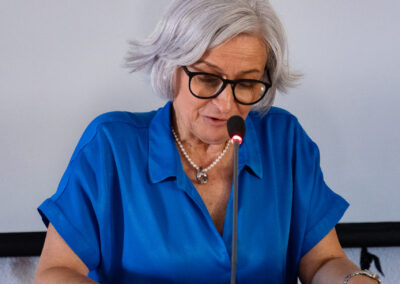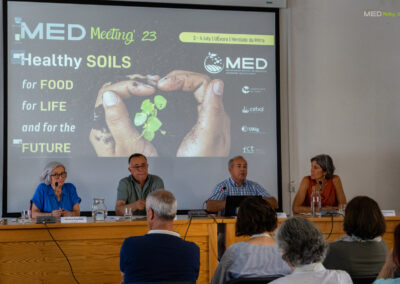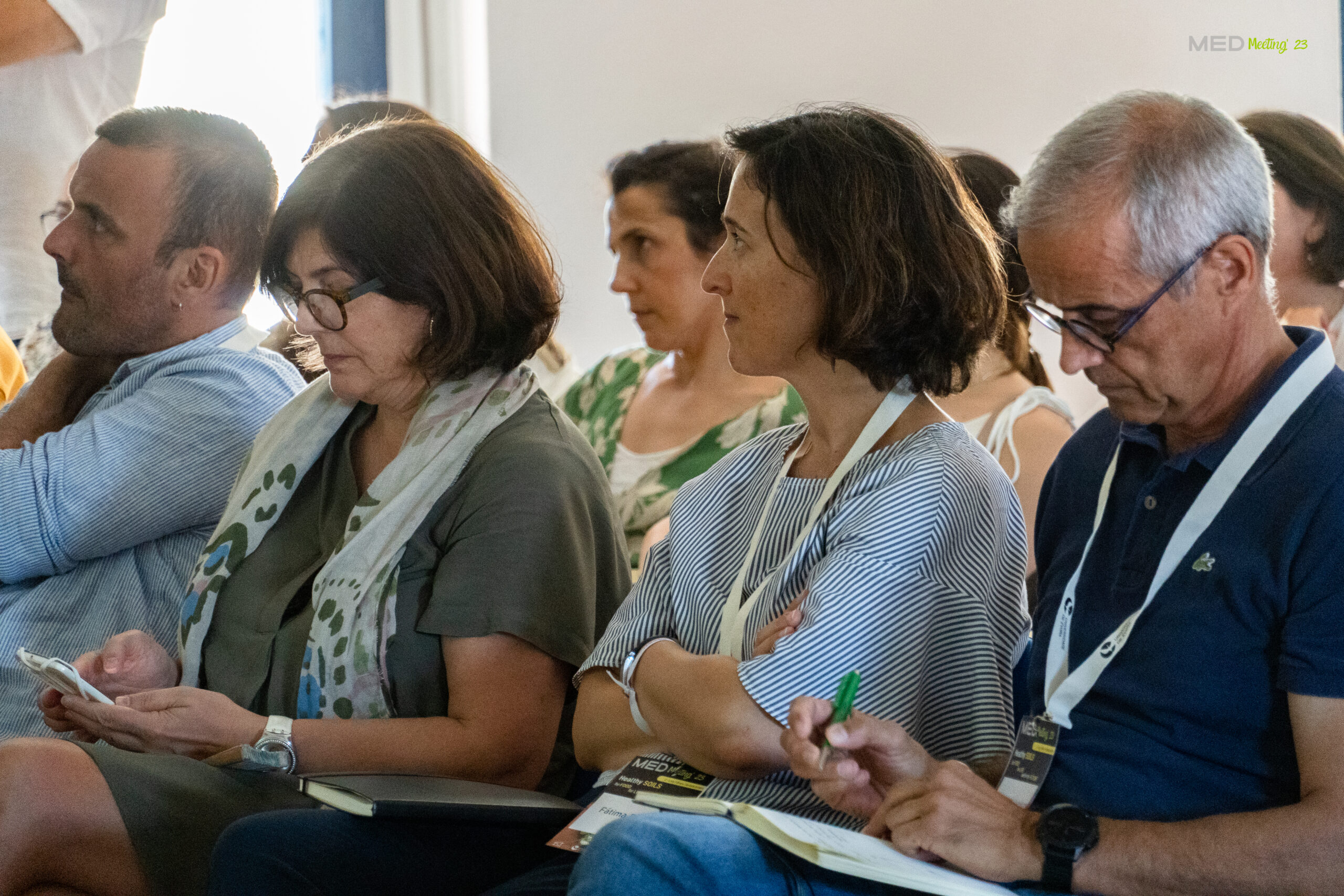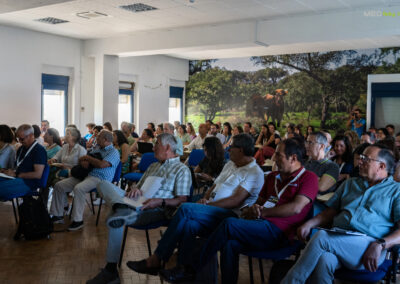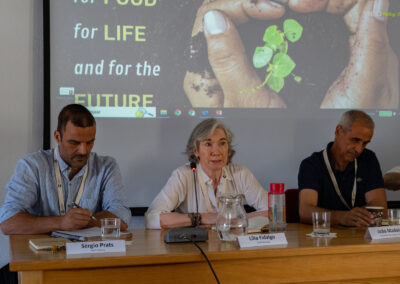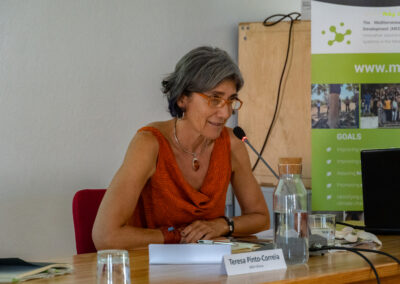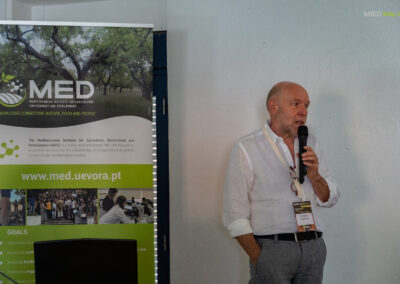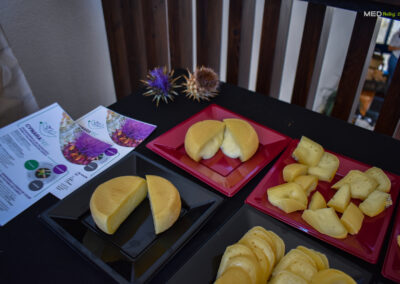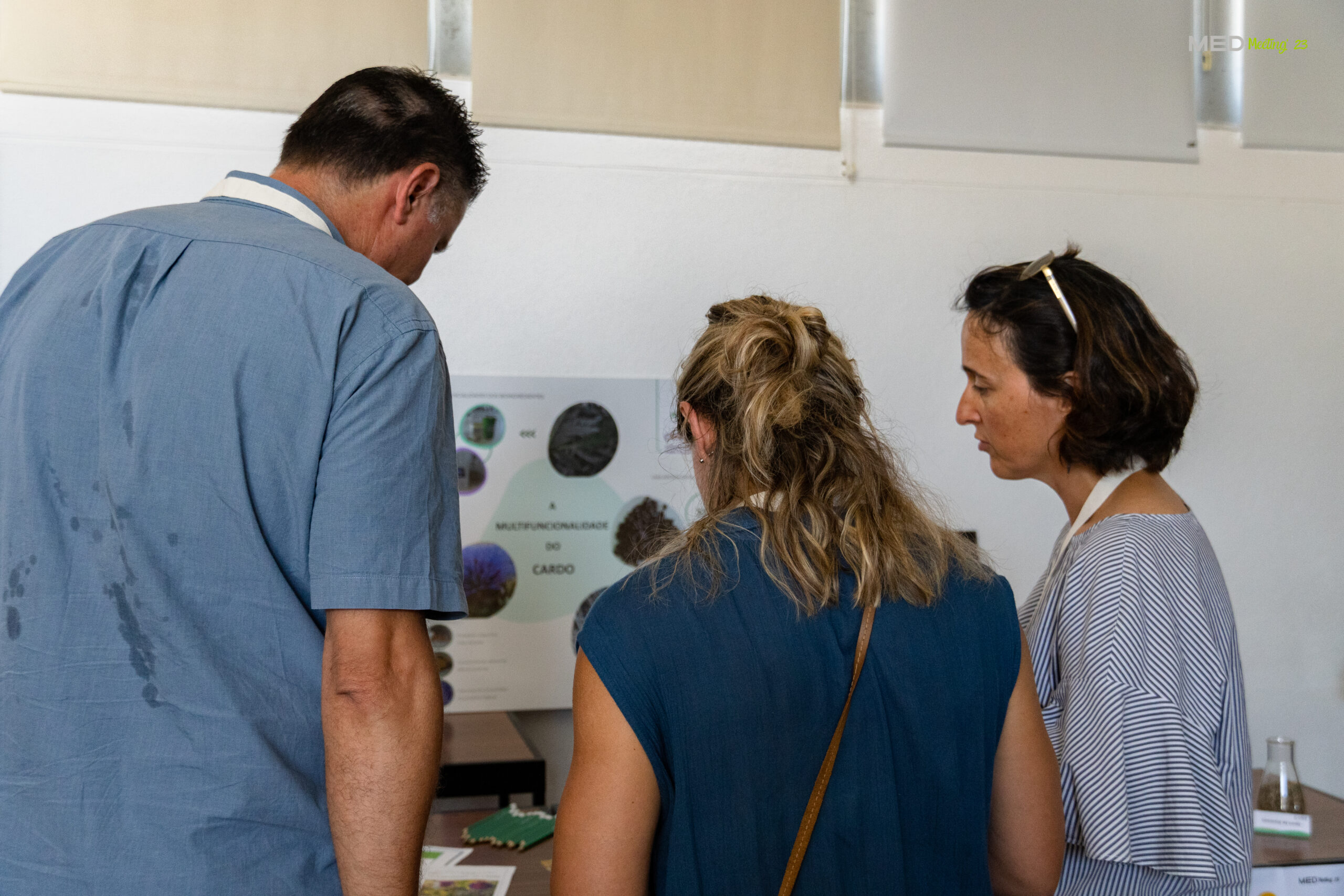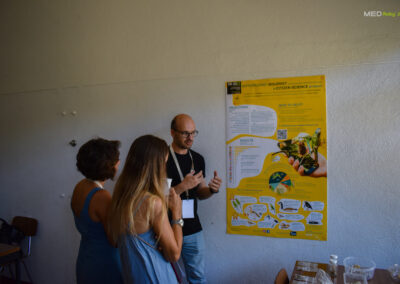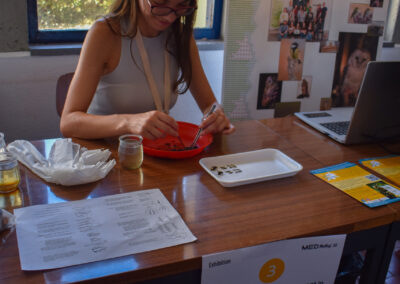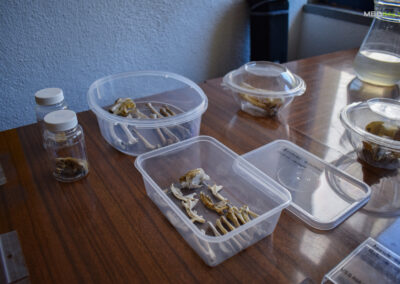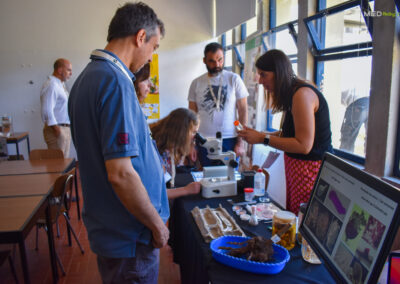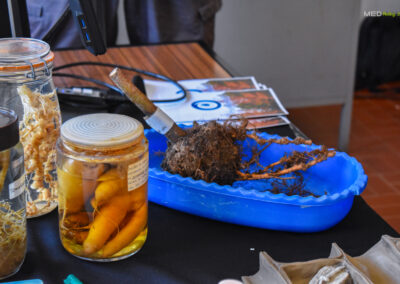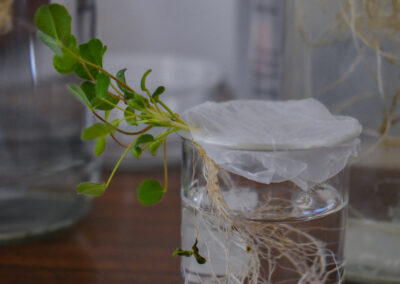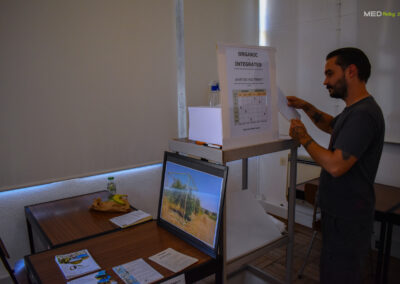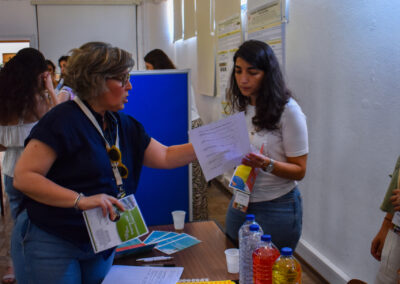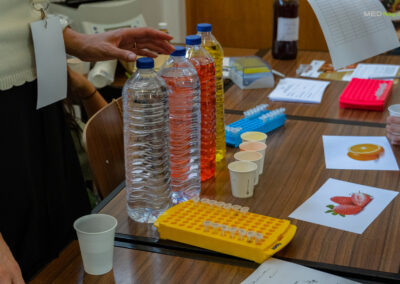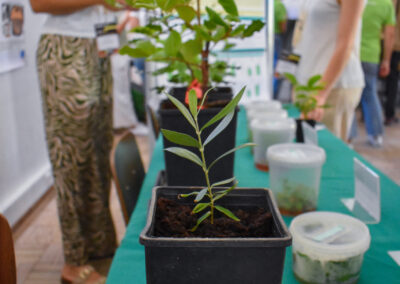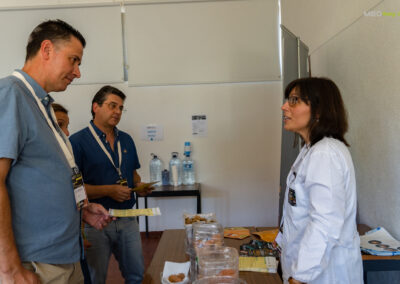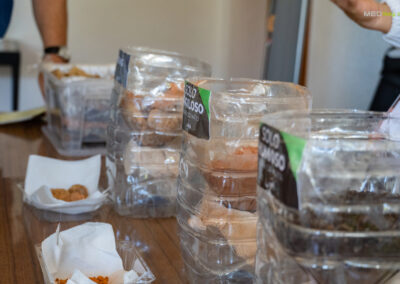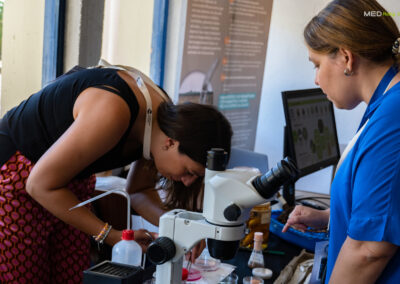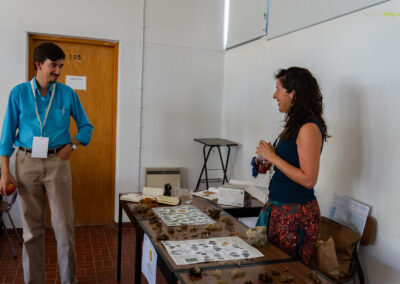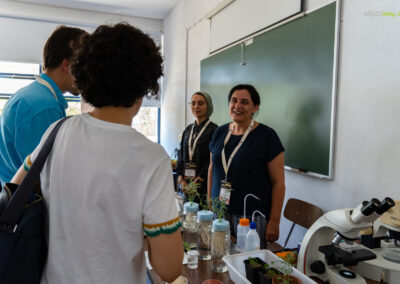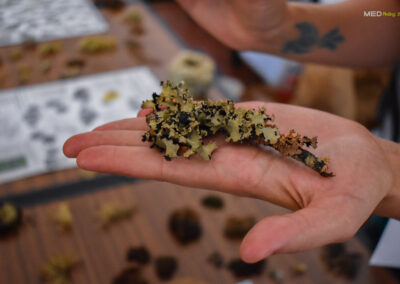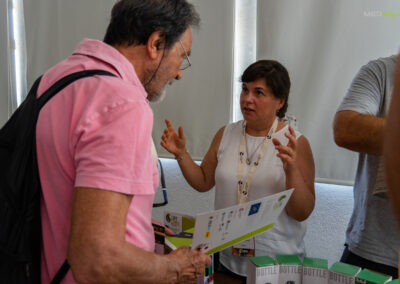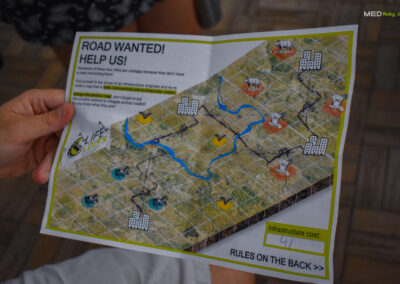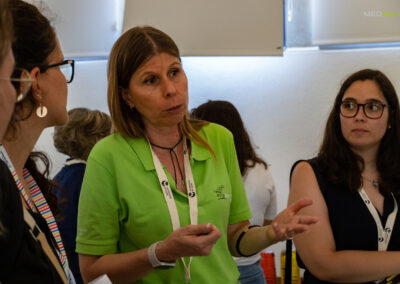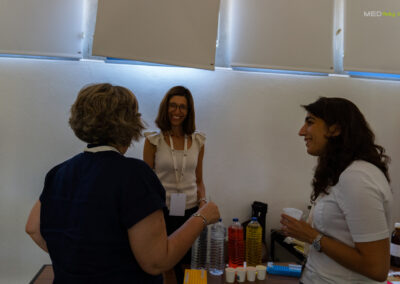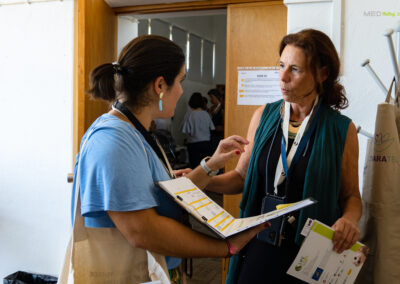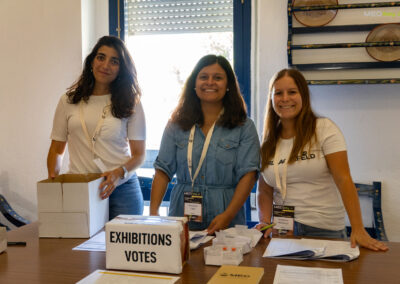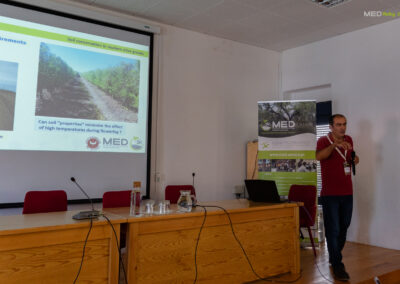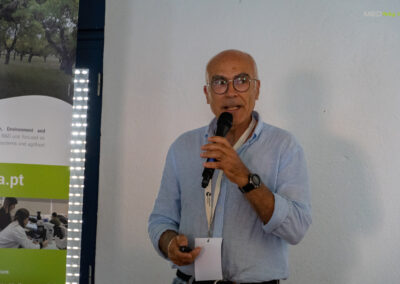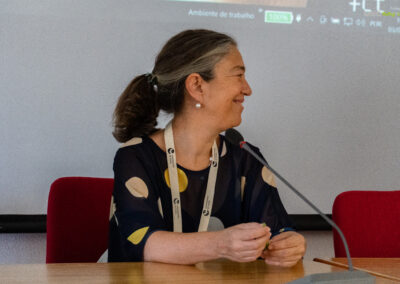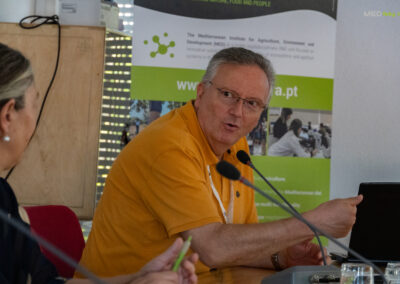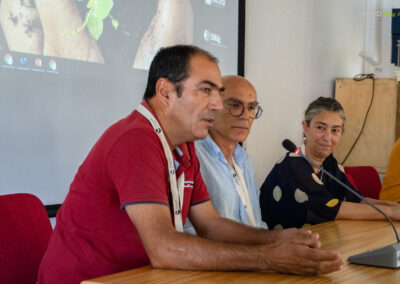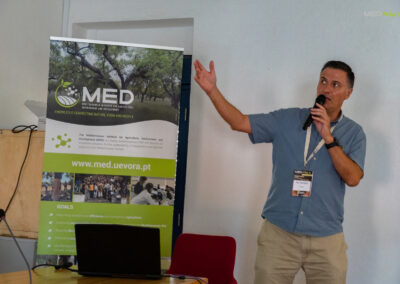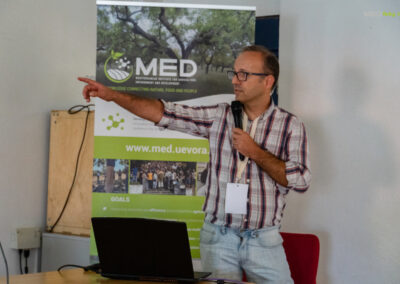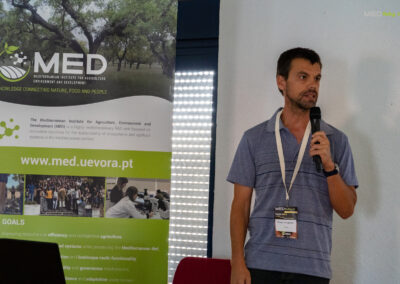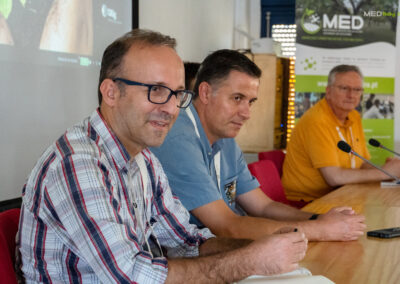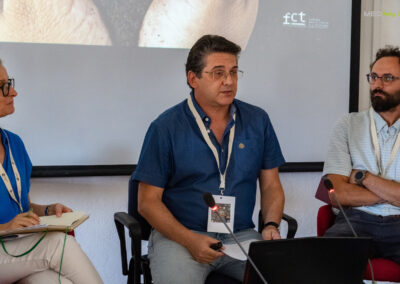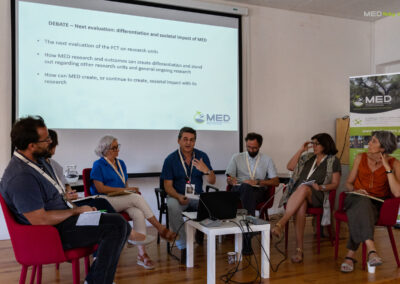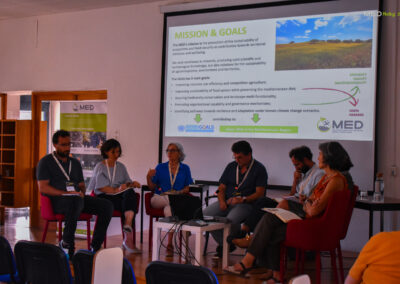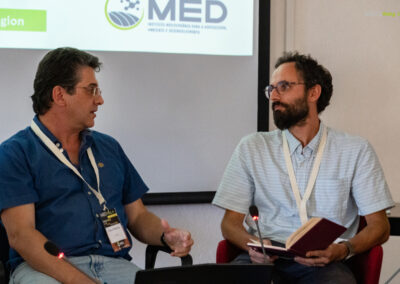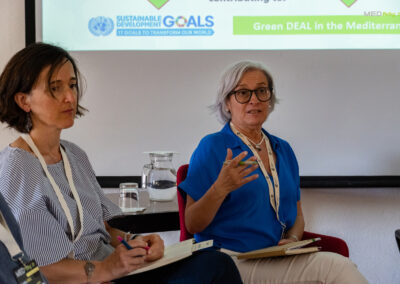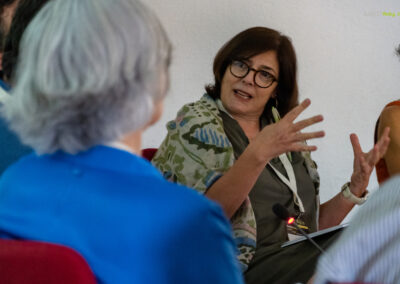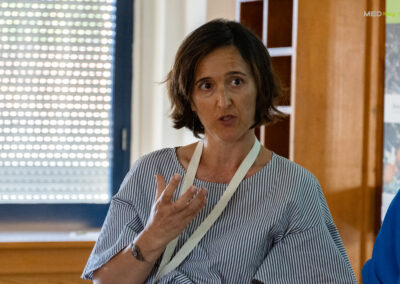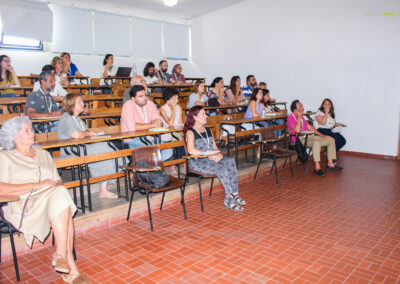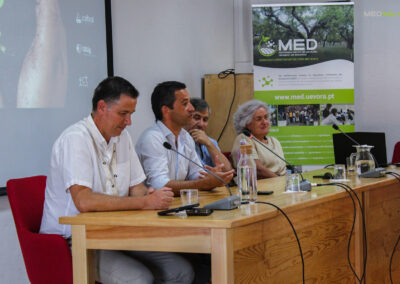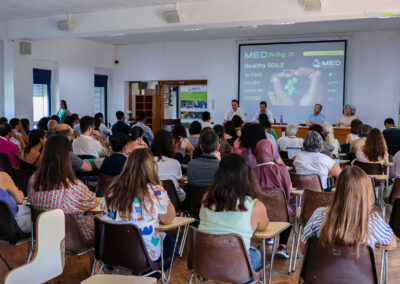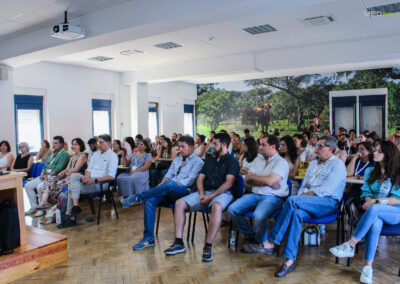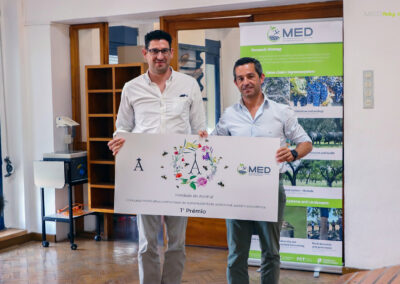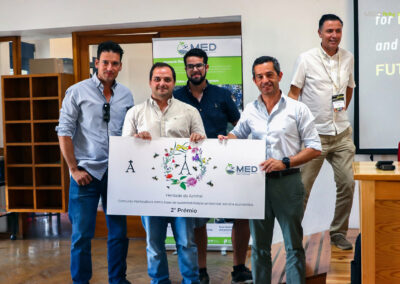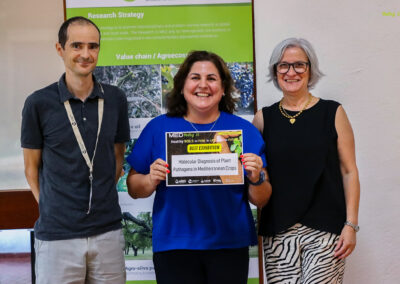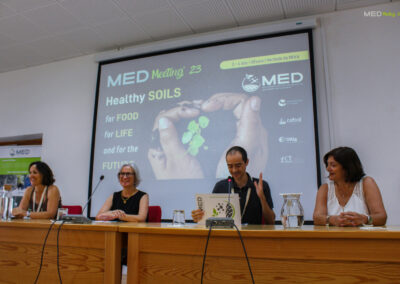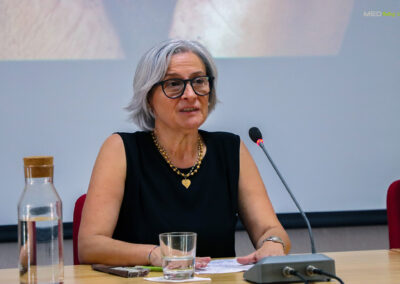More than 100 researchers attended MED Meeting 2023
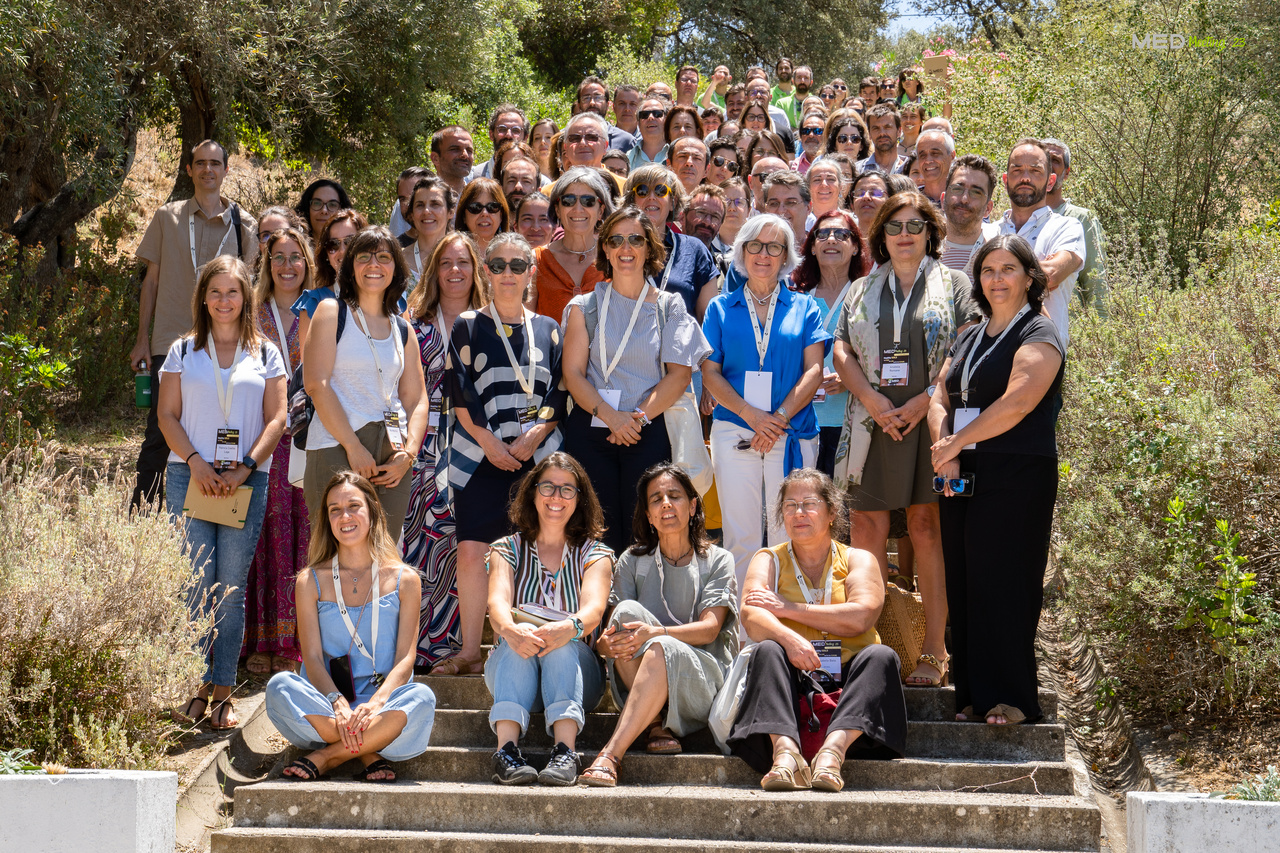
On July 3 and 4, the Mitra Campus of the University of Évora was the setting for the 2nd MED Meeting. In a day and a half full of scientific activities we gathered more than 100 researchers of the MED belonging to the University of Évora, to CEBAL – Agricultural and Agro-Food Biotechnology Centre of Alentejo and the University of Algarve. “Healthy Soils: For Food, For Life and For the Future” was the main theme of this meeting, where MED researchers showed their work through oral communications in thematic sessions and in science demonstrations.
The MED Meeting 2023 promoted internal knowledge of the research carried out in this R&D unit based at the University of Évora, also seeking to stimulate collaborative and multidisciplinary work in the search for solutions to current challenges facing agriculture, environment and development in the south of the country and other Mediterranean regions.
This scientific meeting had soil as its central theme, based on the motto “Healthy soils, for food, for life and for the future”. The opening ceremony was attended by Fátima Baptista, Director of MED; Augusto Peixe, Pro-Rector for the Support to Scientific and Pedagogical Units, representing the Rectorate of the University of Évora; Rui Salgado, Director of IIFA of the University of Évora; and Teresa Pinto Correia, as Chairperson of the Organizing Committee of the 2nd MED Meeting. The solemn opening of the event was followed by a special session which brought together the visions and knowledge of specialists from academia (Hubert Wiggering, University of Potsdam, and Sérgio Prats, MED-UÉvora), farmers (João Madeira – Sociedade João Vargas Madeira, S.A.) and public administration (Lídia Fidalgo, CCDR Alentejo) on the importance of having healthy soils which guarantee the future of agriculture, forestry and food production.
The lunch hour was marked by science demonstrations, a novelty in the MED Meeting, where the research teams of the MED and/or laboratories had the opportunity to share some of the activities they develop. The most voted demonstration was “Molecular Diagnosis of Plant Pathogens in Mediterranean Crops”, corresponding to the team of the MED-UÉvora Plant Virology and Mycology Laboratories.
The work continued with sessions dedicated to the contributions of the thematic lines of research of the MED for soil conservation, given by its coordinators. These sessions showed the solid work that the MED has been developing in favour of soil conservation, covering both the production of new scientific knowledge and the transmission of this knowledge into practice, among farmers, policy-makers and other actors with intervention in the territory. The idea that the SDM should increasingly seek to get closer to society and the actors in the field, seeking to ensure that decisions are taken based on the best scientific knowledge available, was also reinforced.
The end of the first day of the event culminated in a debate on the challenges of differentiation and societal impact that MED will face in the near future. This moment of conversation and interaction between researchers, led by Nuno Pedroso, Executive Director of the MED, was very productive, generating ideas to increase multidisciplinarity and transdisciplinarity, already evident in the MED, and to maintain a continuous search for solutions that allow research results to reach users and have an impact on society and public policies. New technologies were identified as strong allies of research and innovative and participatory approaches as tools for co-construction of knowledge. The pertinence of using new indicators on scientific production, its societal impact, internal performance, the reinforcement and qualification of human resources and the capacity to communicate and disseminate knowledge was discussed.
The second day was devoted to oral communications submitted by the MED researchers and grouped into the following parallel sessions: “Soil regenerative practices”, “Land use management”, “Food production”, “Microbiology applications”, “Public policy application”, “Sustainability of resources”.
The MED Meeting 2023 closed with an example of collaboration between research in academia and practical application, materialised by the awarding of prizes under the competition “Horticulture as a basis for environmental, social and economic sustainability – Herdade do Azinhal”. This competition was promoted by Herdade do Azinhal, an agricultural production company, in partnership with the MED, aiming to search for innovative management solutions in horticulture carried out by university students in the areas of agronomy and related areas. António Paula Soares, representative of Herdade do Azinhal, who attended the ceremony to present these awards, stressed the importance of this type of partnership between companies and academia, so that knowledge can actually be applied and tested in the field.
During these days, the MED brought together at Herdade da Mitra 120 researchers who showed their research work in 13 practical demonstrations, 31 oral communications and 7 communications by invitation in thematic sessions. This showcase of research at the MED highlighted the MED’s differentiating profile: a research unit bringing together a large number of researchers, covering multiple areas of knowledge and technology within the agricultural and environmental sciences, biological sciences and social sciences, demonstrating a great capacity to carry out research that brings together various disciplines and involves society in the production of new knowledge.
We look forward to seeing you all in the next edition of this Meeting!
